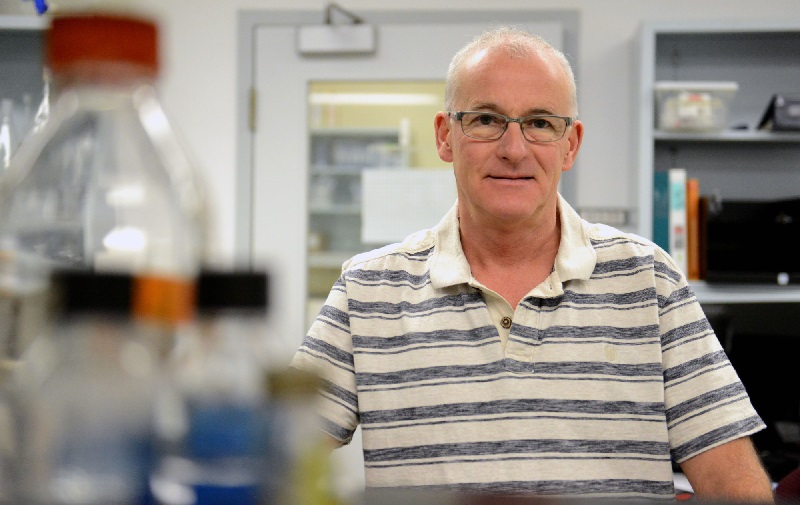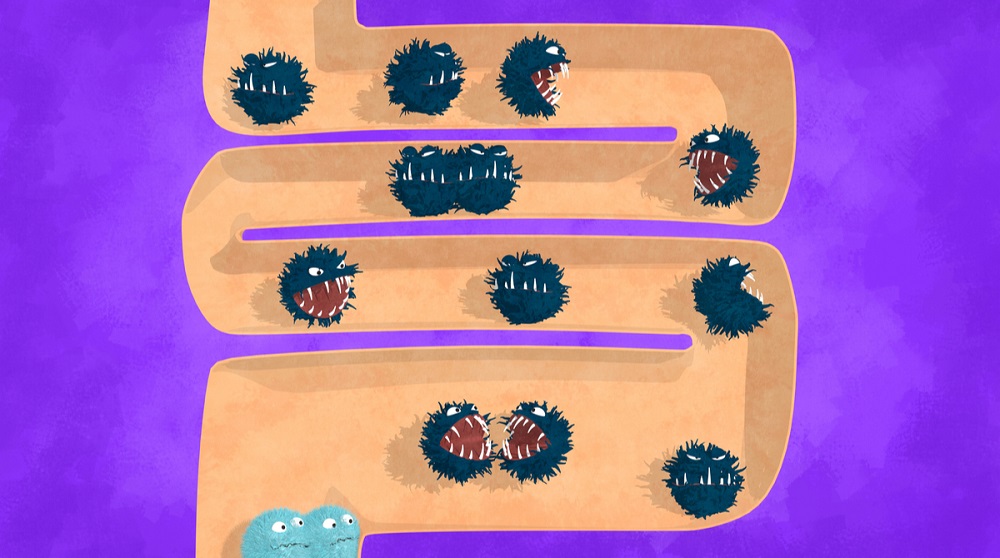Researchers Link Human Microbiome With “Ridiculously Healthy” Aging in Centenarians
Summary: Microbiome study of centenarians shows that ‘ridiculously healthy’ elderly have the same gut bacteria composition as healthy 30 year-olds. Can a more robust microbiome lead to the longer healthier life enjoyed by centenarians, or is it the other way around? [This article first appeared on the website LongevityFacts.com. Follow us on Google+ | Facebook | Reddit. Author: Brady Hartman. This article was updated Dec. 2, 2017]
A recent study found that centenarians have the same microbiome as 30-year-olds.
In one of the most extensive studies of the human microbiome to date, an international group of researchers linked a healthy gut with “ridiculously healthy” elderly known as centenarians. This important study was conducted by the China-Canada Institute (CCI), a collaboration of geroscientists from the Lawson Health Research Institute, Western University, and Tianyi Health Science Institute in China. The researchers published their study titled “The Gut Microbiota of Healthy Aged Chinese Is Similar to That of the Healthy Young,” in the journal mSphere.
Microbiome of Centenarians
The CCI study participants consisted of over 1,000 adults living in China ranging in age from three years of age to centenarians, those over 100 years old. The geroscientists purposely selected participants who were healthy, in that they had no known medical conditions nor a significant history of a family disease.

The researchers showed that the gut microbiota ecosystems of healthy centenarians were just about the same as those of healthy 30-year-olds. Dr. Greg Gloor, the principal investigator of the study and a Professor of Biochemistry at the University of Western Ontario, remarked
“The main conclusion is that if you are ridiculously healthy and 90 years old, your gut microbiota is not that different from a healthy 30-year-old in the same population,” the lead author added, “Whether this is cause or effect is unknown.”

Professor Gregor Reid, the co-author of the CCI study and a geroscientist at Lawson Health Research Institute, described the goals of the study saying,
“The aim is to bring novel microbiome diagnostic systems to populations, then use food and probiotics to try and improve biomarkers of health. It begs the question—if you can stay active and eat well, will you age better, or is healthy aging predicated by the bacteria in your gut?”
The Human Microbiome
Each of us has a unique profile of bacterial colonies both inside our bodies and without. The human microbiome, also called the microbiota, forms a dynamic ecosystem of mostly good bacteria and sometimes less-friendly ones. Microbiome colonies take up residence within our intestines immediately after birth and are essential to our health, affecting a broad range of neurobiological, physiological, and immunological functions through every decade of our lives.
Can We Become Centenarians With a Microbiome Upgrade?
While the CCI study seems to suggest that a healthy microbiome leads to the longer, healthier life enjoyed by the centenarians, a bit of caution is in order. Geroscientists do not know the cause and effect relationship between the human gut microbiota and healthy aging. The study suggests several possible conclusions: a) a healthy microbiome produced the exceptionally long life of the centenarians or b) the unusually healthy genes and lifestyle of the centenarians produced a healthy microbiome or c) a little bit of both.
Heeding the advice that “correlation does not imply causation, but it sure is a hint,” my guess is that choice ‘c’ is the correct answer. A healthy microbiome contributes to improved health, and improved health helps create a healthy microbiome. A bigger question is ‘how large a role does the microbiome play in the long lifespans of the centenarians?’
Making Centenarians with a Microbiome Upgrade
At first glance, it seems that the study implies that we can all become centenarians with a microbiome upgrade. Not so fast. For people with specific health problems, changing the gut microbiota through a fecal transplant has worked. Moreover, a researcher extended the lifespan of middle-aged fish with a microbiome transplant from the young fish to the old ones. However, researchers have not conducted similar studies using fecal transplants to extend the lifespan of healthy elderly adults.
For example, researchers have proven that a high fiber diet loaded with fruits and vegetables leads to a longer healthier life. Geroscientists do not know if the health benefits come from feeding our microbiome, the phytonutrients, or a combination of both. My guess is the latter. In fact, the authors of the CCI study concluded,
“we found that the microbiota of the elderly in this population was similar in almost all respects to that of healthy people in the same population who are scores of years younger. We speculate that this similarity is a consequence of an active healthy lifestyle and diet, although cause and effect cannot be ascribed in this (or any other) cross-sectional design.”
Untested Microbiome Supplements
Snake oil salesmen are peddling a variety of microbiome-enhancing and or microbiota-boosting supplements. Fecal transplants that treat a specific disease and delivered under the care of a licensed, qualified physician are an accepted medical tool. Untested microbiome supplements sold by non-physicians are dubious. It would seem that these supplements are a waste of money at best, and some could even be bad for one’s health.
For Would-be Centenarians
The goal of geroscience is to tinker with the body to help us live the longer, healthier lives. However, when it comes to the microbiome, researchers have not yet learned enough to be able to fool mother nature.
Bottom Line
Research on the human microbiome is still in its infancy, and it is way too early to conclude that we can all become centenarians with a microbiome upgrade. Of course, lifestyle habits affect our microbiomes, such as dietary choices or supplements. However, it is difficult for researchers to claim if health improvements are due to the healthier diet or the improved microbiome.
While the microbiome is too imprecise to be used as a standalone indicator of physiological age, the study seems to suggest that the state of our microbiota could be used as an indicator of overall health when used alongside biomarkers of aging. In any case, the human microbiome is emerging as one of the hot research topics of 2017.
Related Articles on the Microbiome
- Does Our Microbiome Cause Inflammaging? (Link between the microbiome and chronic inflammation.)
- Why Are People Eating Pills of Poop? (Fecal transplants used to cure human diseases.)
- (Video) How Bacteria Rule Over Your Body – the Microbiome (Excellent introductory video explains the role of the microbiome in human health.)
- IBM to Study Role of Human Microbiome in Autoimmune Disorders. (The microbiome is becoming the hot topic among silicon valley firms.)
- Forget About The Blood Of Teens – Young Poop, Old Poop is the Latest Thing. (Fecal transplants extend fish lifespan.)
Show Us Some Love
- One click helps us spread the word – Show some love and share this post on your social media account and share it with your friends. It only takes one click on any of the social media links on this page.
- Follow us on social media – For more articles, follow us on Google+ | Facebook | Reddit
- Sign up for our email list – We use your email to notify you of new articles. We won’t spam you, and we won’t share your email address. Cancel at any time.
- We love comments – Scroll down and tell us what you think.
References
“‘Ridiculously healthy’ elderly have the same gut microbiome as healthy 30 year-olds.” [Press Release] The Schulich School of Medicine & Dentistry at Western University. October 11, 2017. Available Online.
Bian, Gaorui, Gregory B. Gloor, Aihua Gong, Changsheng Jia, Wei Zhang, Jun Hu, Hong Zhang, Jeremy P. Burton, Gregor Reid, Yongliang Xiao, Qiang Zeng, Kaiping Yang, Jiangang Li. “The Gut Microbiota of Healthy Aged Chinese Is Similar to That of the Healthy Young.” mSphere (2017) DOI: 10.1128/mSphere.00327-17. Available Online.
Disclaimer
Diagnosis, Treatment, and Advice: This article is intended for educational and informational purposes only and is not a substitute for qualified, professional medical advice. The information and opinions provided herein should not be used during any medical emergency or for the diagnosis or treatment of any medical condition. Experimental therapies carry a much higher risk than FDA-approved ones. Consult a licensed and qualified physician for the diagnosis and treatment of any and all medical conditions. Call 911, or an equivalent emergency hotline number, for all medical emergencies. As well, consult a licensed physician before changing your diet, supplement or exercise programs. Photos, Endorsements, & External Links: This article is not intended to endorse organizations, companies, or their products. Links to external websites, mention or depiction of company names or brands, are intended for illustration only and do not constitute endorsements.

3 Replies to “Researchers Link Human Microbiome With “Ridiculously Healthy” Aging in Centenarians”
Comments are closed.